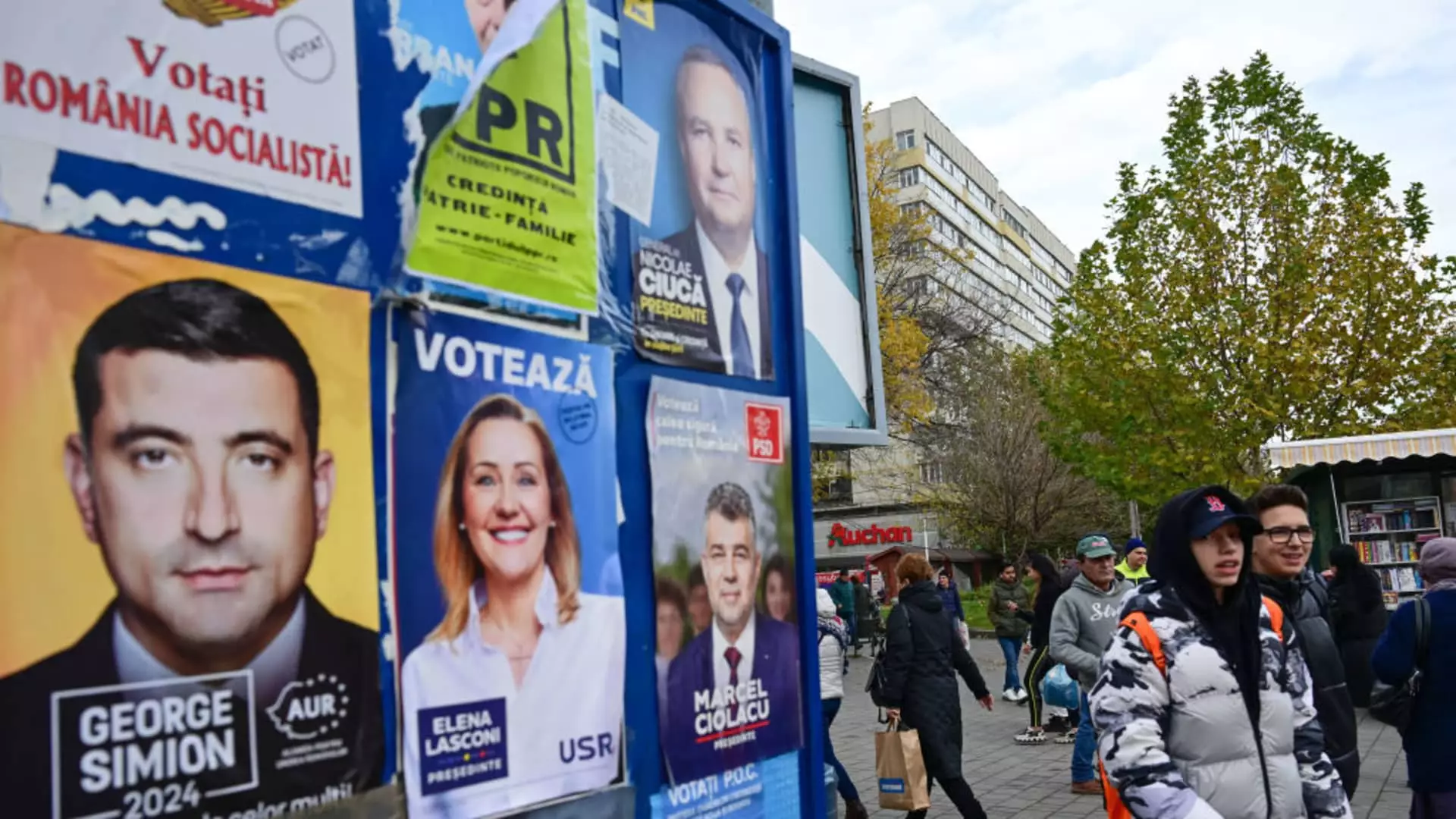The recent presidential election in Romania has delivered unexpected results that are reverberating through the country’s political atmosphere. Independent candidate Calin Georgescu, representing far-right and pro-Russia sentiments, managed to garner 22.94% of the votes, placing him in the lead during the first round of elections on Sunday. Although his performance was significant and longer than anticipated, it wasn’t enough to secure an outright victory, as he fell below the required 50% threshold. This outcome not only shocked political analysts but also the electorate, who anticipated a less robust showing from Georgescu.
Elena Lasconi, the mayor of Campulung and leader of the opposition Union Save Romania (USR) party, emerged as Georgescu’s adversary for the runoff set to take place on December 8. Lasconi, who attained 19.17% of the votes, champions a pro-NATO and pro-European Union agenda. Importantly, she has actively supported military aid for Ukraine during the ongoing conflict. This ideological clash between Georgescu’s ultranationalism and Lasconi’s liberal stances sets the stage for a fascinating political showdown.
In a historic turn, the Social Democrat Party (PSD), under Prime Minister Marcel Ciolacu’s leadership, did not secure a position in the runoff. With merely 19.16% of the votes, Ciolacu placed just shy of Lasconi, marking the first time since 1989 that the PSD will not be represented in a presidential runoff. This loss signals a potential shift in public sentiment away from traditional party loyalties, raising questions about the future viability of the PSD amidst rising populism and far-right ideologies.
Joining Georgescu in the landscape of far-right movements is George Simion, leading the Nationalist Alliance for Uniting Romanians (AUR), garnering 13.87% of the votes. This populist surge reflects an expanding dissatisfaction among voters regarding mainstream politics and societal grievances, which these candidates are capitalizing on. The resonance of nationalistic rhetoric appears to be on the rise, suggesting that the public may be increasingly drawn to radical solutions.
The election also highlighted Lasconi’s unique stance on social issues, as she remains the only prominent candidate advocating for civil unions for same-sex couples, albeit she refrains from supporting same-sex marriage. Her nuanced approach could attract progressive voters disillusioned by traditional party platforms. Voter turnout stood at 52.55%, indicating a moderate level of engagement; however, the fact that nearly half of the electorate chose not to participate raises concerns about apathy and disillusionment with the political system.
The runoff election promises to serve as a critical juncture for Romania. With Georgescu’s ultra-nationalist ideology pitted against Lasconi’s reformist agenda, the outcome could redefine the Romanian political landscape. Voter engagement will be crucial, as the decisions made in this forthcoming election not only determine the next president but also guide the country’s trajectory on pressing issues from corruption to foreign policy. The stakes are high, and as Romania navigates through these polarized times, the world will be watching closely.

Leave a Reply